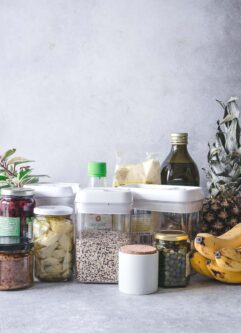Which Sustainable Food Certifications Can You Trust — and Which are Fluff?
Do sustainable food certifications confuse you? Don’t worry, this list of trustworthy ethical food certifications breaks down the good, the bad, and the meaningless labels so you can eat green and shop sustainably. Download our handy food label cheat sheet!
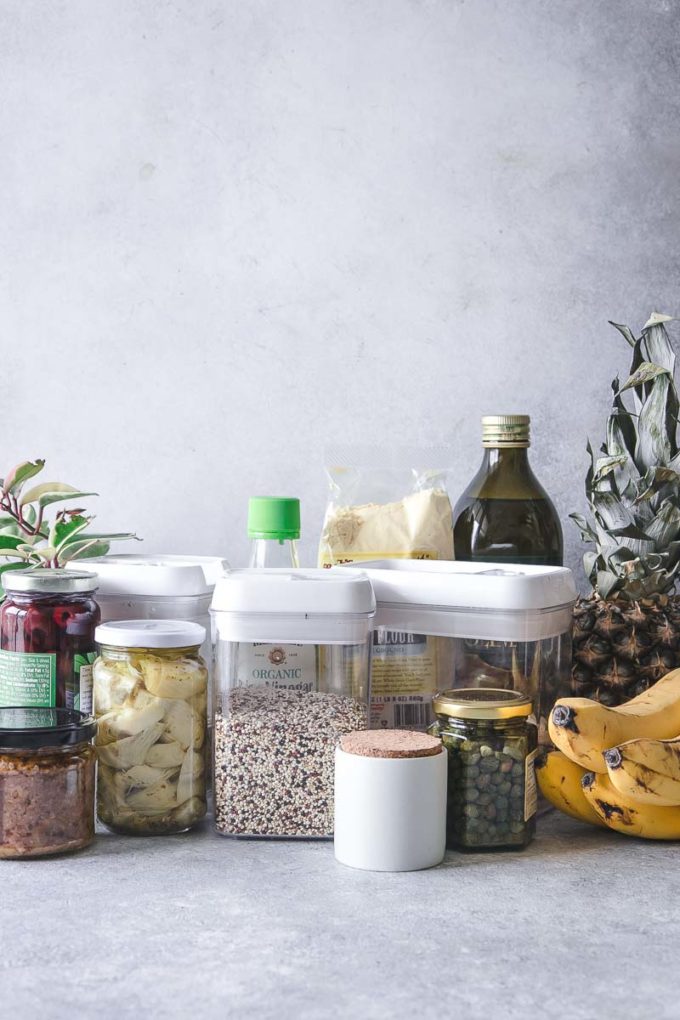
Want to Save This Recipe?
Enter your email & I’ll send it to your inbox. Plus, get new plant-based recipes in your inbox!
By submitting this form, you consent to receive emails from Fork in the Road.
Do food certifications, labels, and marketing claims confuse you? You’re not alone. A simple stroll through any grocery store aisle means deciphering dozens of different labels environmental, nutrition, and agricultural food labels. It’s no wonder consumers state they are confused by sustainable and ethical food packaging labels.
Adopting a sustainable diet means knowing where your food comes from, but it can be challenging to know which stamps and seals are backed by government agencies and reputable third-party certifiers, and which are simple food manufacturer marketing claims. That’s why we pulled together our top list of trustworthy food certifications…and those you can take with a grain a salt.
Ready to learn which food certifications and labels are worth your time? Let’s do it!
✅ Food certification labels you can trust
USDA Organic
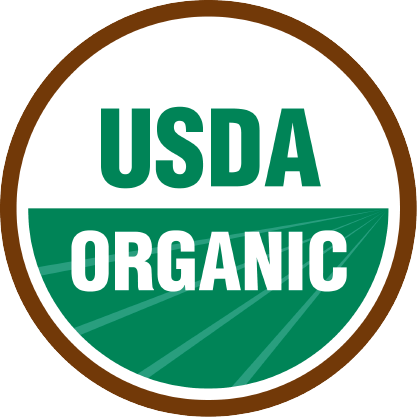
Any food product with the USDA Certified Organic must be certified by a USDA-certified agency that ensures that animals are provided organic feed and have access to the outdoors, and that plants foods are grown without genetically-modified organisms, as well as most synthetic fertilizers, herbicides, and insecticides.
However, some organic food advocates think this is not enough. Organizations like The Real Organic Project and the Regenerative Organic Alliance would like to exclude concentrated animal feeding operations (CAFOs, otherwise known as “factory farms”), hydroponic growing, and further stringent rules regarding the deterioration of soils.
👉 Should you trust the USDA Organic certification? Yes, if you are concerned with eating organic foods then the USDA Organic label is a trustworthy source. However, if you have strong feelings about biodiversity and ecosystem preservation, the USDA label may not be enough.
Demeter Biodynamic

While the USDA is a baseline certification for identifying foods that are raised and grown organic, the independent Demeter Biodynamic label also takes into account preservations of ecosystems. This agriculture certification uses the USDA as a foundation, but also assesses that farms are ensuring the least amount of biodiversity loss through soil health, ethical animal husbandry, and regenerative agriculture practices. Learn how farms become Demeter Biodynamic certified here.
👉 Should you trust the Demeter Biodynamic certification? Yes, Demeter Certified Biodynamic is the gold star in organic, regenerative agriculture certifications. You can even search biodynamic-approved farms near you the handy Demeter-certified farm interactive map.
Hormone- and Antibiotic-Free Labels
Generally the terms hormone-free and antibiotic-free are trustworthy labels; however, it does depend on the type of food products. Here’s a breakdown of what to know when it comes to hormones and antibiotics:
Hormone-free food labels
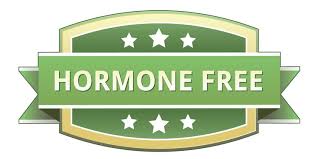
- USDA bans the use of artificial growth hormones in organic milk and meat, so choosing organic will always means it is free from added hormones.
- Conventionally-grown meat and dairy (meaning not organic) may also use the term “no added hormones” if not artificial hormones were used in the raising of these animals. Keep in mind that artificial hormones are never allowed in the raising of poultry and hogs, per the USDA.
- Good to know: The reason these hormone labels are phrased “no added” or “without additional” is because animals, like humans, naturally have hormones — so saying “no hormones” is technically not correct because there are hormones naturally found in animal foods. These labels refer to the addition of hormones, in particular growth hormones (which increase the time needed for an animal to reach full growth/maturity).
Antibiotic-free food labels
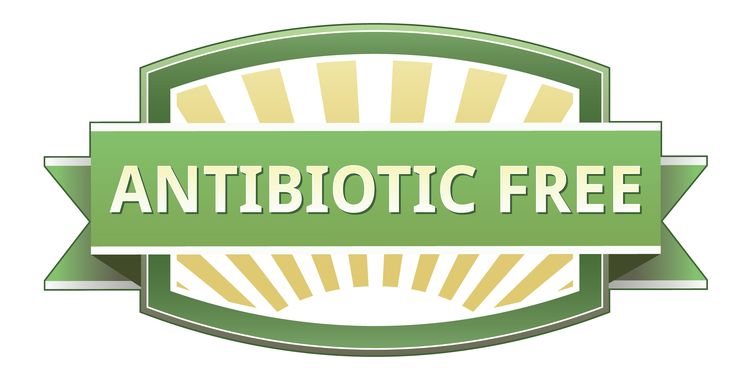
- Conventionally-grown raised meat, poultry, and eggs can use the claims “no added antibiotics”, “raised without antibiotics”, and “no antibiotics ever”.
👉 Should you trust Hormone and Antibiotic-Free labels? Yes, when buying conventionally-grown meat, poultry, and eggs you can generally trust the hormone and antibiotic labels. Keep in mind how the label is phrased; “without the use of routine antibiotics” may mean that the animal did receive antibiotics, but not regularly. If you want to ensure the animal foods you eat do not contain added hormones and antibiotics, choose organic when possible.
Certified Humane
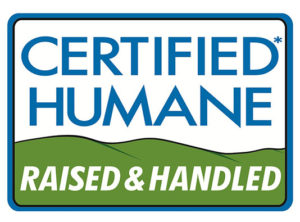
The Certified Humane standard ensures that animals raised for food are free from abuse, as well as have access to shelter areas, access to the outdoors, and per-animal space requirements. The certification also ensures a facility’s slaughter practices align with what is commonly thought to be humane.
However, many animal rights advocates argue that space requirements for poultry are not up to par, and that there is no “humane” slaughter in the routine killing of animals for food.
👉 Should you trust the Certified Humane label? If you consume animal products and believe that animals raised for food should be provided with respect, then the Certified Humane label should be a certification you look for in meat, poultry, and eggs.
Animal Welfare Approved
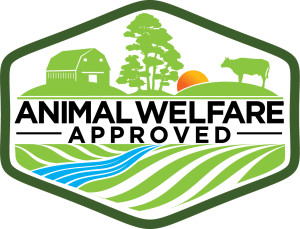
If you do consume animal foods but want to ensure the ethical raising of meat, poultry, and eggs, the Animal Welfare Approved label is considered the highest rated certification. It has stringent rules around pasture provided to grazing animals, per-animal sufficient space, and the ability for animals to exhibit their natural behaviors (roaming, etc.).
👉 Should you trust the Animal Welfare Approved certification? Yes, if the ethical treatment of animals raised for food is important to you, look for the Animal Welfare Approved label for all meat, poultry, and egg purchases.
Fair Trade Certified
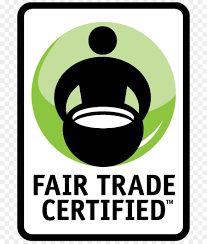
Certifications and labels aren’t only for organic produce and ethical animal treatment — they are also for the fair working conditions for humans. The Fair Trade Certified label denotes produce that came from farms and companies that aim to foster better working conditions for farm workers. The label can be found on bananas, chocolate, and coffee — a few of the most exploited crop trades globally — and increasingly in other produce as well.
👉 Should you trust the Fair Trade Certified label? Yes, choosing fair trade bananas, coffee, and tea means you are choosing products that are working to decrease the exploitation of marginalized farm workers globally.
❎ Which food labels should you ignore?
The food certifications above are generally trustworthy labels that are backed by strict government oversight or by stringent third-party assessments. However, there are many other food labels and claims that are pure fluff and should be treated with a skeptical side-eye.
Pasture Raised
Unless this label is alongside an animal welfare certification like Animal Welfare Approved, this claim does not ensure that animals had access to the outdoors, ate an organic diet, or received ethical treatment.
Free Range
Another label to be skeptical of if the food product does not also have an animal welfare certification. If this is a stand-alone claim on a carton of eggs, this does not ensure the chickens had actual pasture to roam — it could just mean they had tiny closed-in porch access.
100% Natural
Anytime you see the “natural” claim on a food label without any other certifications, consider it food marketing. Natural could mean anything — natural flavor extracts, naturally-derived additives, etc. Even high fructose corn syrup is “natural”.
Locally Grown
While eating and buying local is something we highly recommend here at Fork in the Road, the labels “local” or “locally grown” have no set parameters on what food products are defined as local and how far away “local” really is. Some cities and states have individual initiatives that help residents identify local foods, however the best way to buy local is to visit your local farmer’s markets, join a community-supported agriculture program, and get to know your local producers.
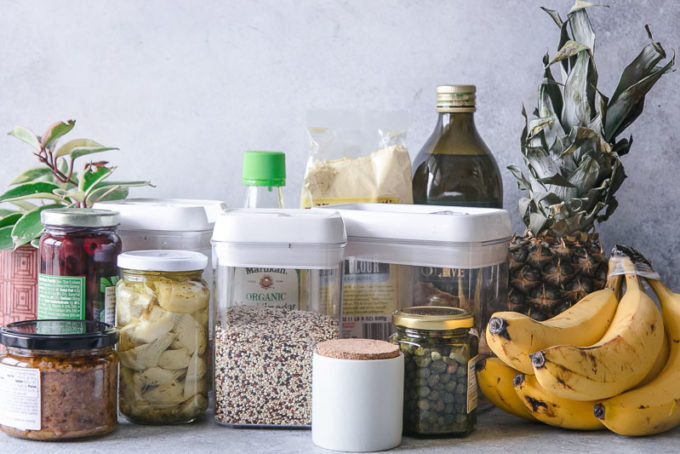
With all of the possible food labels, claims, and certifications available, it’s easy to see why the average consumer is confused by what food labels means. However, with a little research you can arm yourself with knowledge of which certifications align best with your own personal food philosophy. And that’s what green eating means — making the most informed decisions for a better food future.
♻️ Want more inspiration for going green in the kitchen? Join the Green Living Community for plant-based recipes, sustainable kitchen hacks, and get our FREE guide to meal planning to reduce food waste!
UPDATE: This guide to reliable food labels was first published in June 2019 and was updated with new information and photos in July 2021.

